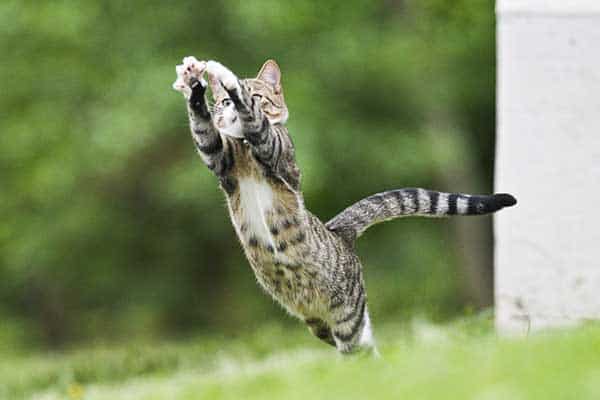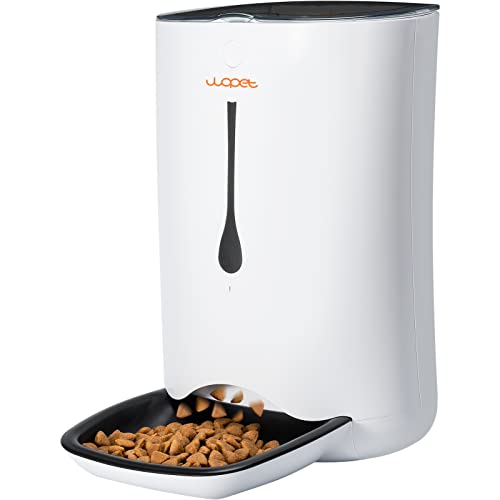There’s a long list of research studies and documented evidence that classifies flies as some of the most deadly insects.
Indeed, flies are known to transmit a broad spectrum of diseases. Examples include typhoid fever, salmonellosis, dysentery, cholera, gastroenteritis, trachoma, worms, to mention but a few. That’s why medical experts discourage any contact between flies and humans.
The constant demonization of flies has seen most of us acquire a natural hatred for these insects. If you also own a cat, you might be wondering if the infections that flies can spread to humans also apply to cats.
One of the common concerns that vets usually get from cat owners is, “my cat keeps eating flies and it gets me wondering, can my cat get sick from eating flies?”
Technically, cats can eat flies. Like many other bugs and insects, flies are not immediately harmful to cats. Problems may only arise if the fly is presently carrying an infection that it can transmit to your cat, or if it has been contaminated with toxic insecticides.
Is it safe for cats to eat flies then?
While flies are not immediately dangerous to cats, there are safety concerns to be aware of.
Read on as we delve deeper into flies for cats. The post shall highlight why cats eat flies, what could possibly go wrong, and what you can do to prevent your cat from eating these insects.
Table of Contents
Why Do Cats Eat Flies?
Is it ok for my cat to eat flies? We will discover later on as to whether flies are okay for your cat or not.
First, let’s begin easy by understanding why cats actually do eat flies.
Now, the main reason why cats eat flies is that cats are natural hunters and are instinctively designed to chase anything that moves.
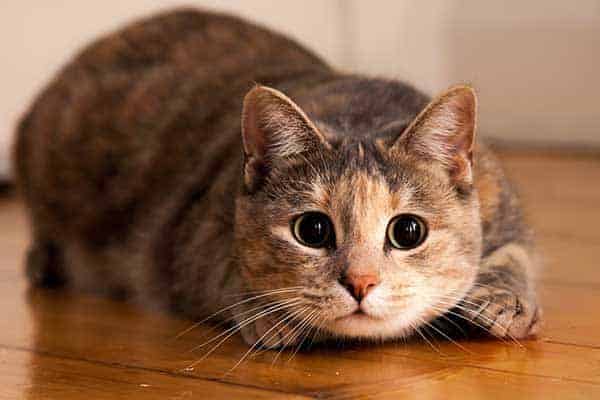
Cats may have lived with their human owners for thousands of years. However, these animals haven’t lost most of their natural instincts, one of which is their strong prey drive.
As a natural hunter, cats tend to chase things that move around in random motions. If the cat succeeds in hunting down a fly, it might just as well eat the insect. After all, the whole idea of hunting prey is to eat it.
Another reason why cats hunt flies is that the bugs represent the ultimate toy for cats.
Flies are quite difficult to swat. And though your feline friend is a very flexible animal, it may take hours to successfully hunt down one fly. But the cat loves it that way.
While a fly perches on and jumps off surfaces randomly to avoid being caught, the cat actually believes that the fly is enjoying the game.
So, your kitto will keep chasing the insect until it either hunts it down or the fly vanishes from sight completely. And this takes us back to our earlier question, is it ok if cats eat flies?
Well, the truth of the matter is that we love it better when our cats chase flies but hate it when they hunt down the bugs and eat them.
Though we’ve already highlighted that flies pose no immediate danger to cats, it’s safe to assume that eating flies could come with long-term health implications to your feline friend. Plus, the sight of a cat biting down a fly is pretty gross.
- FEED YOUR PET WHILE YOU’RE AWAY - Schedule up to 4 automated feedings per day using the built-in programmable timer.Program each...
- CONTROL PORTION SIZE OF EACH FEEDING - Dispense anywhere from 2 teaspoons to 4.5 cups dry food per feeding to sustain any size...
- RECORD A CUSTOM MESSAGE FOR YOUR PET - Keep your pet excited about meal times! Press and hold the mic button for three seconds to...
Last update on 2024-07-11 / Affiliate links / Images from Amazon Product Advertising API
Are there any benefits if my cat plays with flies?
Yes. Playing with flies keep your feline friend physically stimulated. Your cat can play with these animals for hours and in the meantime, release their pent-up energies.
Also, chasing flies prevents the insects from settling on surfaces to lay their eggs.
Better yet, it prevents them from contaminating your food (in the case of houseflies), especially if the bugs are threatening to infest your kitchen.
What Happens If Cats Eat Flies?
So far, there doesn’t seem to be any major health concerns resulting from cats eating flies. And that may get some cat owners wondering, are flies good for cats to eat?
Well, flies may not be entirely safe for cats to eat, after all. As we’ve already hinted, there are a few things to pay attention to.
Essentially, the following are the major health risks as far as cats eating flies is concerned.
- If the cat eats more of the insects than it should,
- If the fly is contaminated with a harmful pesticide or insecticide, and
- If the insect contains active pathogens that it can transmit to your feline friend
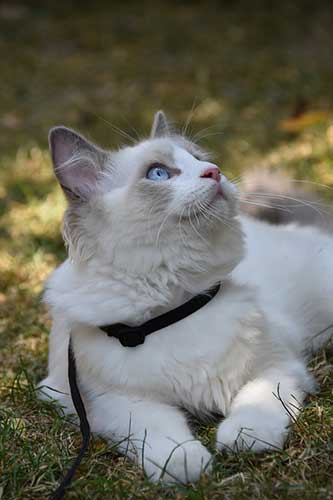
1. Eating more flies than it should
Now, it’s difficult to establish the exact number of flies that are considered unsafe for cats to eat.In most cases, cat owners realize that their feline friends snacked on too many bugs when it’s already too late.
If your cat has eaten more flies than its fair share, the animal may experience a series of gastrointestinal complications.
The most common symptoms to watch out for include nausea and vomiting, diarrhea and dehydration, abdominal pain, and fatigue.
Note that these complications may not necessarily imply that the flies eaten are toxic. Instead, they mean that the cat’s digestive system has been suddenly introduced to an unfamiliar food.
It’s similar to the digestive issues humans experience when we suddenly adopt an unfamiliar diet.
But even if your cat doesn’t develop any digestive issues after having eaten many flies, you should still be a concerned pet parent. Eating too many flies could be indicative of a poorly-fed cat.
- High protein cat food dry formula with real chicken as the first ingredient
- Natural with prebiotic fiber nourishes specific intestinal bacteria for digestive health
- Wholesome cat food dry kibble with vitamin A and Omega-6 fatty acids to nourish skin and coat
Last update on 2024-07-11 / Affiliate links / Images from Amazon Product Advertising API
2. Eating contaminated flies
In regions where fly infestation is endemic, most people often use pesticides or insecticides to try and eliminate these bugs.
Many pesticide products are highly effective against flies. Unfortunately, only a handful of these products are formulated with pets in mind.
So, unless you spray your house or yard with pet-safe insecticides, you’ll not only succeed in exterminating the flies. You might also expose your cat to the toxins in these products.
Symptoms of pesticide poisoning range from vomiting and diarrhea to lethargy, hypersalivation, loss of appetite, etc.
In the worst-case scenario, cats that become exposed to contaminated flies might die, depending on the potency of the pesticides used.
What makes it even riskier for your cat to eat contaminated flies is that there will be a lot of the bugs lying around. As such, your cat may eat several of them, further exposing itself to the toxins in these pesticides.
As a responsible pet parent, your best bet is to schedule a visit with your vet as soon as you notice any of the above symptoms.
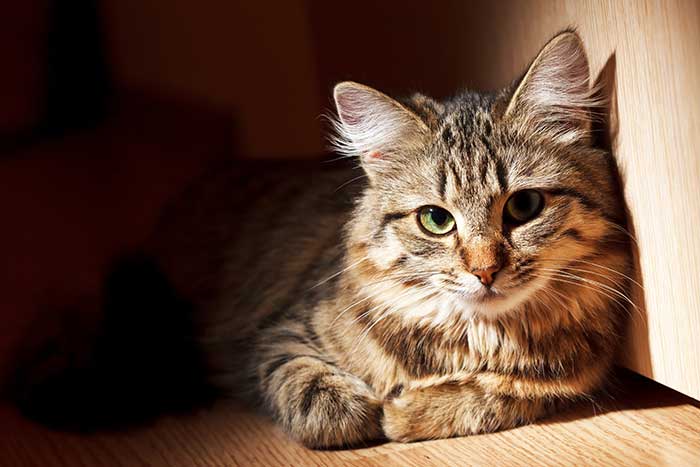
3. Eating flies that contain active pathogens
This is unarguably the greatest risk associated with cats eating flies.
Worms are some of the common pathogens that your cat can get exposed to after eating flies. So, you may have been wondering, can cats get worms from eating flies?
Yes, they can. Certain fly species are known to transmit potentially dangerous worms. Examples of these worms include tapeworms and Physaloptera.
The following are other pathogens that have been identified in flies, and which could make your cat sick;
- Bacterial pathogens
- Bacillus (including anthrax)
- Campylobacter
- Escherichia
- Helicobacter
- Listeria
- Salmonella
- Staphylococcus
- Fungal pathogens
- Microsporum
- Moniliella
- Rhizopus
- Rhodotorula
- Scopulariopsis
- Parasitic pathogens
- Ascaris
- Cryptosporidium
- Giardia
- Metastrongylus
- Taenia
- Trichuris
In addition to the above pathogens, some flies can even transmit viruses to your feline friend.
- Works as a dog food topper - For pet parents looking for an alternative to capsules, raw treats, or soft chews, all it takes is a...
- A tasty & body nourishing treat for cats & dogs - Essential fatty acids for a healthy coat.
- Powerful Omega Fatty Acids - This premium fish oil liquid formula is loaded with the healthy Omega-3 fatty acid (with epa and dha)...
Last update on 2024-07-12 / Affiliate links / Images from Amazon Product Advertising API
Still on pathogens, some pet parents may be wondering, can my cat get maggots from eating flies?
Essentially, maggots occur when a fly lays its eggs on your cat’s open wound or irritated skin. So, your cat will unlikely get maggots from eating flies.
However, the cat can still get maggot infection, known as myiasis, from eating maggots.
But can flies lay eggs on cats?
Yes. Flies typically lay eggs on decomposing wounds or fecal matter. Cats with festering wounds are common targets for egg-laying flies.
And that also brings us to the questions, can cats eat fly eggs and if yes, can cats get sick from eating fly eggs?
Fly eggs are not harmful on their own. However, remember that flies tend to lay their eggs on decomposing wounds or matted hair that’s contaminated with fecal matter. That means your cat can get sick if it eats fly eggs from any of these places.
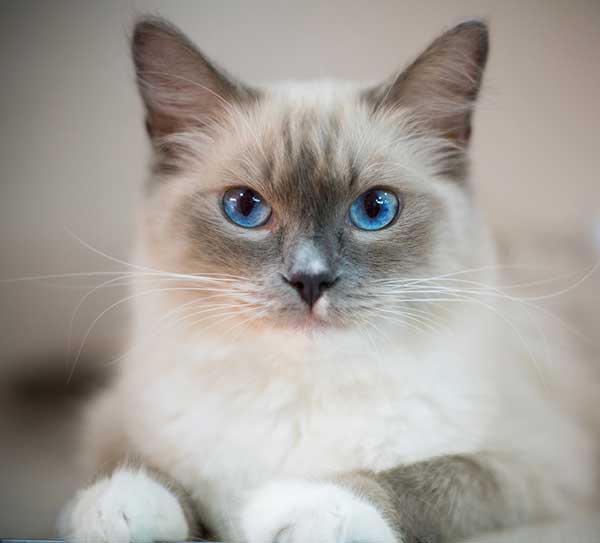
How to Prevent Your Cat from Eating Flies
Having gone through the potential risks associated with flies, you may be wondering if there’s anything you can do to reduce your cat’s exposure to these insects.
The good news is that there are numerous ways on how to prevent a cat from eating flies.
✔ Feed your cat well – Feeding your cat well may not prevent it from chasing around flies. But it will surely prevent it from eating the insects even if it succeeds in hunting them down.
✔ Install screen doors and windows – Screen doors and windows allow light and air to come in while keeping out flies and other bugs.
✔ Don’t leave food outside – This is another measure towards keeping flies away from your home.
Remove food that’s lying around on your table, open shelves, and from your pets’ food bowls. On the same breath, dispose of all animal feces and other decomposing matter in well-sealed garbage bins.
✔ Use pet-safe pesticides – If you must spray your house or yard, go for pet-friendly pesticides and insecticides.
Besides these measures, you can also consider getting your cat a fly-looking toy. Most importantly, ensure you have regular vaccination and deworming programs for your furry friend.
Conclusion: Can Cats Eat Flies?
Cats can eat various forms of flies, and there shouldn’t be any immediate cause for alarm.
However, problems could arise if your kitto snacks on more flies than it should, or if the flies are contaminated with pathogens and insecticides.
Checkout Our Favorite Cat Products
1. Best Online Course For Cat Parents
Our favorite: The Cat Language Bible (How to Finally Undrestand And Speak to Your Cat) – A new form of cat to human communication that many cat owners have dreamed about… but few have actually thought possible.
2. Best Vacuum to Tackle Pet Hair
Our favorite: Dyson Ball Animal 2 – Engineered for homes with pets. With features and tools that dig out dirt, hair and allergens everywhere your pet gets.
3. Best Immune Support For Cats
Our favorite: Tomlyn Immune Support – Best Supplement for Cats and Kittens.

